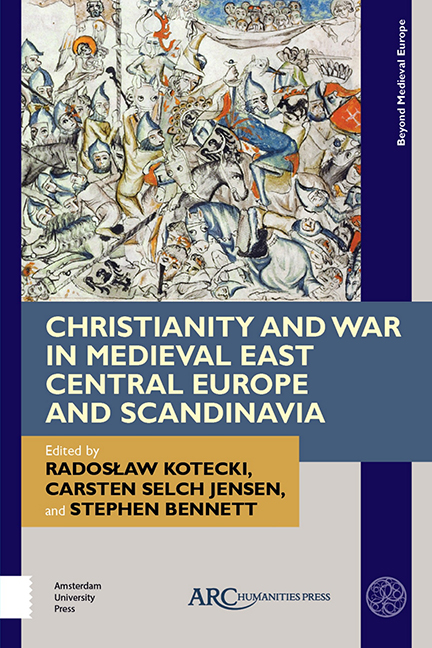Chapter 11 - Civil War as Holy War? Polyphonic Discourses of Warfare During the Internal Struggles in Norway in the Twelfth Century
Published online by Cambridge University Press: 27 May 2021
Summary
IN 1130, KING Sigurd Magnusson of Norway, nicknamed Jerusalem-Traveller (Jórsalafari), died in Oslo. His only son, Magnus was hailed as king in the traditional manner at an assembly in Oslo following the burial of his father. However, another claimant, Harald Gille, had arrived from the British Isles a few years earlier, claiming he was the half-brother of King Sigurd. When he learned of the events in Oslo, he had himself hailed as a king at another assembly in Tønsberg. Harald Gille and Magnus Sigurdsson were acknowledged as co-regents in the following year, but soon the hostility between the two kings and their followers became apparent. In 1139, both Harald Gille and King Magnus were killed along with a third pretender. The three young sons of Harald Gille became kings of Norway, but after reaching maturity their rivalry and mistrust led to a new phase of warfare.
The death of King Sigurd Jerusalem-Traveller has been seen as the start of a century of “civil wars” in Norway. During the same period, Norwegian kingship evolved from being based on a kings’ personal qualities and ability to win battles, to a more bureaucratic and institutional state organization. This development was supported by the growing power of the Church, especially in the wake of the establishment of the first archbishopric in Norway in 1152 or 1153. Although the reforming archbishops sought autonomy for the Church, historians have traditionally emphasized the alliance of Church and kingdom, as seen in, for example, the crowning and anointing of the young king Magnus Erlingsson in 1163 or 1164 (r. until 1184), the importance of the clergy in royal administration, and in the introduction of a new legitimation of kingship in the idea of rex iustus.
The internal struggles have generally been attributed to rivalry between classes, co-rulers, regions, and/ or aristocratic families for controlling the resources of a growing royal power. During the last decades, there has been a renewed interest and debate about the impact of the Church on warfare in the twelfth-century Scandinavia. On the one hand, the internal struggles are interpreted as dominated by personal ties, factions, and networks, which include those of the clerical elite.
- Type
- Chapter
- Information
- Publisher: Amsterdam University PressPrint publication year: 2021



